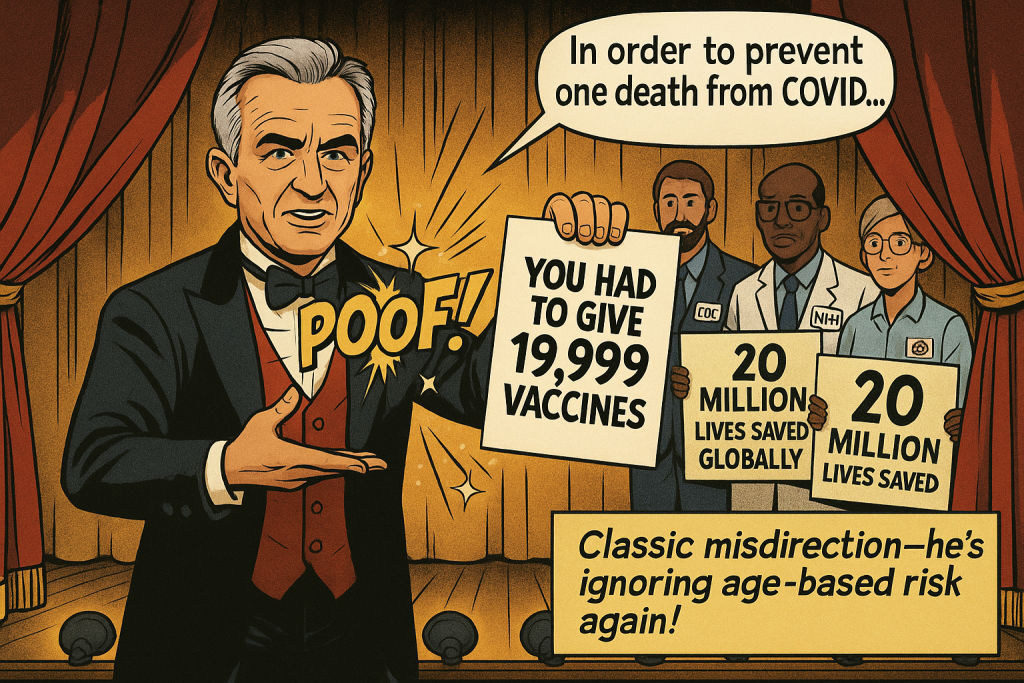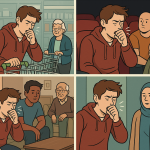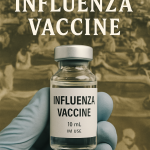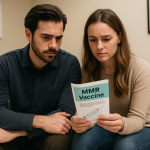Yesterday, in an interview with Tucker Carlson, U.S. Health and Human Services Secretary Robert F. Kennedy, Jr. dropped this little bomb:
“In order to prevent one death from COVID, you had to give 19,999 vaccines. If any of those vaccines were killing people, you would cancel out the effect.”
To the casual ear, it sounds damning — logical, even. Why give so many shots to save just one life? What if even a few of those vaccines had fatal side effects?
But behind the confident delivery is a profoundly misleading argument — one that takes a grain of truth, wraps it in bad math, and buries the overwhelming scientific consensus in the process.
Let’s geek out for a second and unpack why this argument doesn’t just fall apart under scrutiny — it implodes.
🔢 The Sleight of Hand: “Number Needed to Vaccinate”
The stat Kennedy invokes is something real: it’s called the Number Needed to Vaccinate (NNV) — the average number of people who must receive a vaccine to prevent one adverse outcome (in this case, death).1
But here’s the catch: NNV isn’t a fixed number. It varies wildly depending on:
- Age
- Health status
- Circulating variants
- Timing
- Geographic region
- Health system capacity
A 75-year-old with COPD has a vastly higher chance of dying from COVID than a healthy 22-year-old. So if you’re vaccinating seniors, you might need to give just hundreds of doses to prevent one death. In low-risk populations? Thousands, maybe more.
Kennedy’s “1 in 20,000” figure — if it ever applied — would have been a high-end estimate, likely drawn from a narrow window in a low-risk population. But he presents it as a global constant.
That’s math trick #1.
📉 The Lowball Effect: Undervaluing Lives Saved
Let’s roll with RFK’s number for a moment just to illustrate how absurd it gets.
The U.S. administered over 670 million COVID vaccine doses.2
If Kennedy were right — and it took 20,000 shots to save a single life — then vaccines would’ve prevented only about 33,500 deaths.
That sounds like a lot… until you look at the real data.
The CDC and independent modeling studies estimate that vaccines prevented more than 3 million deaths in the U.S. alone by mid-2023.3
Worldwide, a 2022 study in The Lancet Infectious Diseases estimated that COVID-19 vaccines prevented 20 million deaths in 2021 alone.
That’s not a rounding error — that’s a magnitude of 600x. Kennedy’s figure is off by more than two orders of magnitude.
So where did the discrepancy come from?
⚠️ The Setup: Narrow Data, Broad Claim
It’s like using a statistic about bicycle helmets saving lives in low-traffic neighborhoods — and then applying it to Tour de France racers, mountain bikers, and kids doing downhill jumps.
In real-world pandemic conditions:
- ICU beds were full
- Vulnerable populations were exposed
- New variants were spreading fast
And vaccines didn’t just maybe save a few people. They broke the chain of transmission, prevented severe illness, and reduced mortality across entire demographics.4
RFK’s argument pretends this complex reality doesn’t exist. That’s trick #2.
🔁 Misusing Averages Like a Pro
Here’s another way to explain the error:
Let’s say you’re trying to determine how many smoke detectors need to be installed to save a life in a neighborhood of 100,000 homes.
If you average across all homes — including new ones with sprinklers and fire suppression — the number might look huge.
But that hides the reality that in high-risk homes, smoke detectors save lives every day.
Vaccines work the same way. You don’t measure their value by flattening the population and ignoring who’s most vulnerable. You measure them by their impact where it matters most.
🤔 But What If Some Vaccines Did Cause Harm?
That’s Kennedy’s rhetorical flourish: “If any of those vaccines were killing people, it cancels out the benefit.”
The implication is that even a few fatal side effects would tip the balance.
But again — the math doesn’t check out.
Let’s do some rough numbers.
Say we gave 670 million doses, and let’s pretend RFK’s 1-in-20,000 stat is accurate (again, it’s not). That’s 33,500 lives saved.
How many confirmed deaths have been attributed to the vaccine?
According to the CDC and WHO:
- Serious adverse events are extremely rare.5
- Confirmed deaths caused by vaccination are in the hundreds, primarily due to rare clotting events tied to specific vaccines.6
So even using Kennedy’s own low estimate of lives saved, the benefits still outweigh the harms by more than 100 to 1.
And in reality? The benefit is more like 3 million lives saved in the U.S. alone — and fewer than 2 per million doses with fatal complications.7
So no — it doesn’t “cancel out the effect.”
🔬 What the Science Actually Says
Let’s set RFK’s math aside and look at rigorous science.
✅ A Lancet Infectious Diseases study in June 2022 modeled global excess deaths. It found:
20 million deaths prevented by COVID vaccination in 2021 alone.
✅ A CDC report from 2023 estimated that:
3.2 million lives were saved in the U.S. by COVID vaccination.
✅ A WHO analysis concluded that:
COVID vaccines have a strong safety profile, with serious adverse events being extraordinarily rare.
😬 Why It’s So Dangerous
Kennedy didn’t just get the math wrong. He used that math to plant fear — subtly suggesting that vaccination was a wash, or maybe even did more harm than good.
That’s not just misleading. It’s cruel.
Millions of Americans have vulnerable family members — elderly parents, cancer survivors, transplant patients. These people relied on the rest of us to create a shield through vaccination.
To hear the nation’s top public health official imply that this act of collective protection may have been worthless — or worse, deadly — is an act of misinformation masquerading as insight.
🎓 Final Thought: Bad Math Has a Body Count
RFK Jr. wants to sound like he’s asking tough questions. But tough questions require honest data, not cherry-picked numbers and flattened-out populations.
Vaccines don’t need to be perfect. They just need to save more lives than they endanger.
And in this case?
They saved millions.
- https://www.bmj.com/content/347/bmj.f4605/rr-0 ↩︎
- https://covid.cdc.gov/covid-data-tracker/#datatracker-home ↩︎
- https://www.cdc.gov/mmwr/volumes/72/wr/mm7242e1.htm ↩︎
- https://www.cdc.gov/covid/vaccines/benefits.html ↩︎
- https://www.who.int/emergencies/diseases/novel-coronavirus-2019/covid-19-vaccines/advice ↩︎
- https://www.cdc.gov/mmwr/volumes/71/wr/mm7103a4.htm ↩︎
- https://www.who.int/news-room/questions-and-answers/item/coronavirus-disease-(covid-19)-vaccines-safety ↩︎
Last Updated on July 16, 2025







